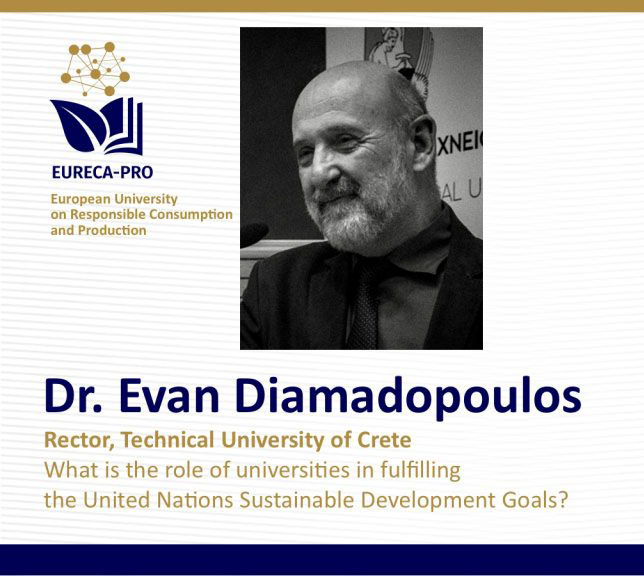Abstract
According to the United Nations, the 17 Sustainable Development Goals are the blueprint to achieve a better and more sustainable future for all. They address the global challenges we face, including poverty, inequality, climate change, environmental degradation, peace and justice.
Universities are the primary institutions for the dissemination of knowledge, through teaching, and for the generation of new knowledge, through research. These aspects make universities essential players in achieving the Sustainable Development Goals.
By definition, Higher Education Institutions fully match the targets and priorities set in the 4th SDG (Quality Education), which calls for inclusive, equitable and quality education. Through innovation in teaching and research, through active participation of all academic stakeholders (teaching and research staff and students) the universities should encompass the vision of the SDGs and respond to the problems set out by the 2030 Agenda.
What can the Universities do in order to fulfill the Sustainable Development Goals? Here are three ideas that I would like to share with you:
- Incorporate all aspects of the Sustainable Development Goals in the university curricula, thus providing students with the knowledge, skills and scientific culture necessary to address the complex challenges of sustainable development throughout their careers. Many programs of study in the seven partner universities constituting the EURECA-PRO Alliance, have already incorporated courses or academic directions towards specific SDGs (for example, SDG 6 – Clean Water and Sanitation and SDG 13 – Climate action), yet further interdisciplinary and a transdisciplinary approaches are necessary. Therefore, technical universities or Engineering Schools/Faculties should develop, amend and implement curricula towards a new engineering discipline, sustainability engineering.
- University governing bodies should adopt policies and implement strategic actions to address the SDGs. In addition to quality in education and research, these policies should target gender equality, appropriate environmental management on campus, moving towards a carbon neutral university, cooperating with the local communities to promote sustainable goals, building a culture for responsible consumption and production, making room for minorities and handicapped citizens. To give more specific examples, we have to practically eliminate the use of fossil fuels for heating and transportation, all university vehicles should be electric, we should renovate all buildings to achieve high-energy efficiency and we should become energy producers instead of energy consumers. We should all set a target that in the next ten years all EURECA-PRO universities become carbon-neutral!
- We all live in a global environment: physical, economic, cultural, technological. To paraphrase an English saying “no university is an island”. Globalization requires global cooperation not only among universities, but also among national and transnational institutions, corporations and businesses, as well as local communities on a wider scale. Universities in the developed world and in Europe, in particular, can play an important role to provide training and professional skills in developing countries in order to meet challenges related to SDGs, for instance: SDG 1 – No poverty; SDG 2 – No hunger; SDG 16 – Peace, Justice and Strong Institution. Only when we work all together, from different countries and cultures, from different disciplines and capabilities, we can make our universities leaders in global change.



